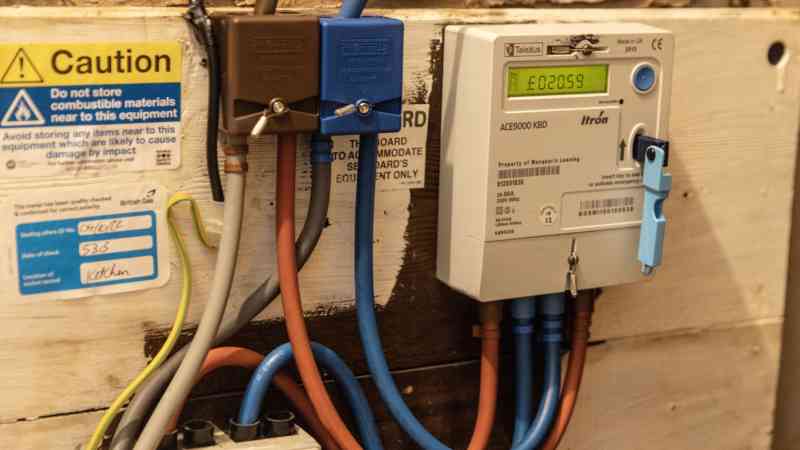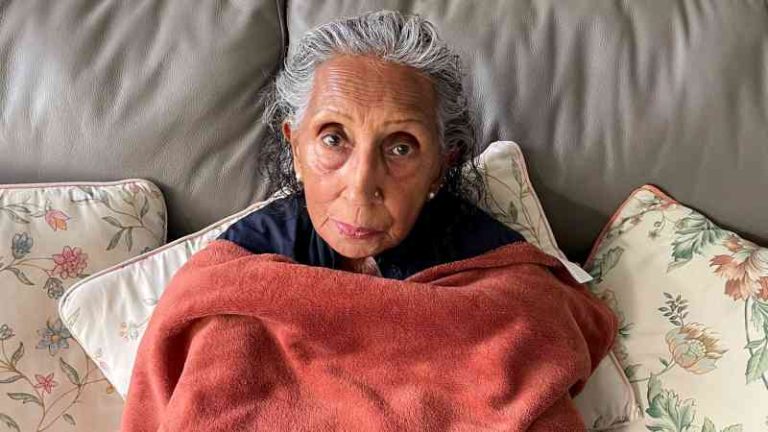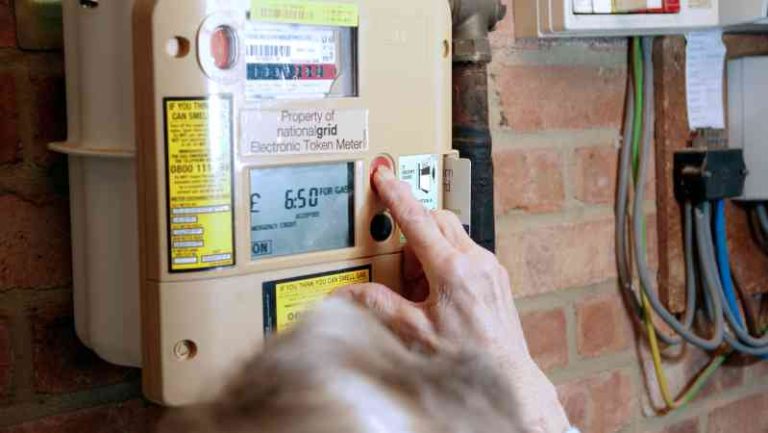Ofgem’s new rules don’t ban force-fitting prepayment meters
Elderly people with Alzheimer’s disease and mothers with newborn babies could still have prepayment meters forcibly installed in their homes under new rules agreed by Ofgem and major energy firms.
The energy regulator has announced an updated code of practice for suppliers, which it said would strengthen protections for vulnerable customers.
However, the new rules are voluntary and could allow firms to continue breaking into some disabled people’s homes to force-fit prepayment meters when they cannot pay off their debts. If energy customers cannot top up these meters, their heating or electricity supply is cut off.
Jonathan Brearley, the chief executive of Ofgem, was questioned on BBC Radio 4’s Today programme about the voluntary code of practice and whether the rules were strong enough to protect vulnerable people.
He said: “We are going to have much tighter monitoring and control over this. I do have a message today for the suppliers themselves. Your reputation is on the line.
“There has been deep concern raised about the practices that have been seen over the past few months and indeed going back into history, and if you do not improve what you do quite frankly there will be further rules and regulations which will be against your commercial interests.”
Ofgem’s code of practice bans energy firms from force-fitting the meters in some “high risk” cases, such as when customers are aged least 85 and live alone, or if physical or mental conditions mean they are incapable of reaching or operating the meters.
The new rules also require representatives of the firms to wear body cameras or audio recorders, with customers’ permission, so home visits can be audited.
However, it also lists conditions that can fall under a “medium risk” category, which requires the firms to do a further assessment of vulnerability but does not ban the forced installations outright.
Those listed in this category include elderly people aged between 75 and 84, parents of children under five years old, pregnant women and people with Alzheimer’s disease, Parkinson’s disease, schizophrenia, learning difficulties and some respiratory conditions.

Campaigners and disability charities said the code of practice should be mandatory and should be strengthened to protect disabled people.
The End Fuel Poverty Coalition, a campaign group, said: “These guidelines go absolutely nowhere near far enough in protecting the most vulnerable.”
Richard Kramer, the chief executive of Sense, a charity for people with complex disabilities, wrote on Twitter: “Forcible instalment of prepayment energy meters in homes of customers over 85 will be banned under new rules from Ofgem. But some disabled people could still miss out — people using power to charge their wheelchairs, for example. Time for an outright ban.”
The new rules were announced after an undercover Times investigation, which found that British Gas was routinely sending debt agents to break into customers’ homes and force-fit prepayment meters even when they were known to have extreme vulnerabilities.
Those who had been targeted included elderly customers, people with known severe mental health problems and the mother of a four-week-old baby.
The findings have led to investigations by Ofgem, the government and two parliamentary committees. The force-fitting of prepayment meters was suspended in light of the Times reports. The announcement of the new code of practice does not mean the practice will automatically restart. The firms are still obliged to prove to Ofgem that they have sufficient processes in place to protect vulnerable customers.
They also have to identify cases where they have previously wrongfully installed the meters and offer those customers compensation.
Last year energy suppliers force-fitted prepayment meters in customers’ homes more than 94,000 times.
Lord Justice Edis, one of the country’s most senior judges, has ordered courts to stop listing hearings for energy warrants and the order has not been lifted. Without these warrants, the firms cannot force-fit meters.
Ofgem said that while the new code was voluntary, all firms had signed up and work was continuing to make adherence to it a licence condition. There is expected to be a consultation on mandatory rule changes in the coming months and some of the rules could be strengthened.
Ofgem said the new code was developed in consultation with Citizens Advice, the consumer charity, and Energy UK, which represents energy firms. It said the new rules would “strengthen protections for customers in vulnerable situations” and allow it to have “tougher oversight of prepayment meters”.
The code clarifies that forced installations should always be a last resort, when all other options to recover debt have been exhausted — and only where it is safe and practicable to do so. Under the rules, suppliers will have to make at least ten attempts to contact a customer, and will have to complete a “site welfare visit”, before breaking into their homes to fit a meter.
People are also protected under the most high-risk category if they need powered medical equipment, refrigerated medicines or have certain conditions that require warmth, such as emphysema.
Those who have meters fitted would be given a £30 emergency credit per meter, although this amount would then be added to their debt.
Tom Marsland, policy manager at Scope, a disability charity, said: “This is a welcome step forward from Ofgem. It will now be clearer when the rules are broken. But this process will still allow energy companies to install prepayment meters in some disabled households. We want to see the forced installation of meters and remote switching banned outright for disabled people.”
Grant Shapps, energy security secretary, said: “The abuse of prepayment meters by energy suppliers in recent months has been disgraceful and I have demanded urgent action from the regulator and suppliers to make sure we never again see vulnerable households treated this way.
“This code of practice is a step in the right direction. I now want to see these words put into action as we have unfortunately learnt that codes and rules alone are insufficient if they are not adhered to and enforced.”
Brearley said that in the vast majority of cases, people with conditions listed in the “medium risk” category would not have prepayment meters installed.
He said: “We’ve got to strike a balance here between making sure we protect the most vulnerable, which is what the code is setting out to do, but also making sure that we have the right balance for all customers so people can find the right solution for them. Even those in that middle category have a huge amount of protection around them.”
Last month, Ofgem faced criticism after it issued legal notices to The Times, attempting to force it to hand over confidential reporter notes relating to its exposé on behaviour at British Gas. The notices included threats of criminal sanctions and unlimited fines.
The legal notices were later rescinded. Brearley apologised to The Times, adding: “We are very grateful for the work you did to uncover the issues that have been raised.”






